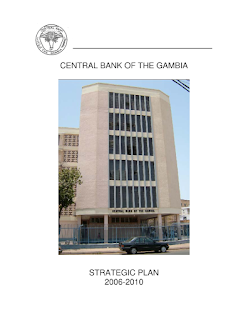A source at the Central Bank of The Bank has informed us that there is "less than two months worth of import cover" as at January 2016.
The current foreign reserve situation is not likely to abate anytime soon given that the two premier foreign exchange earners of the economy - tourism and agriculture - are under performing.
In presenting his 2016 budget to the National Assembly, the Finance Minister said "...the economy has been hit by a external shocks, through the Ebola virus and delayed or insufficient rains putting additional pressure in the growth potential of the agriculture and tourism sectors."
An apparent delay in the start of this year's groundnut purchasing season will adversely affect an already precarious state of the regime's public finances.
Authorities are still tight lipped about the groundnut marketing arrangements for the season and also on whether the Gambia Groundnut Corporation (GGC) has been subsumed, as declared government by the Jammeh regime back in March of last year, into the newly created National Food Security, Processing and Marketing Corporation (NFSPMC).
This unexplained behavior will result in a good part of this year's cash crop finding its way across the border - if it has not already happened - further aggravating an already dire financial straits the regime finds itself. Tourist arrivals is not encouraging either. No wonder, this year and in last, the Finance Minister is warning of another difficult year for Gambians.
With foreign reserves at an all-time low, coupled with a struggling tourism industry and a flagging agricultural sector, the future appears bleak. The fact that development assistance is being withheld from a regime that continues to defy basic international norms of behavior, the challenges in 2016 will be greater. The importation of basic food items like rice and cooking oil as well as other basic necessities of life, not to mention meeting the monthly salary bill, will prove to be a difficult task for the regime of Yaya Jammeh.
